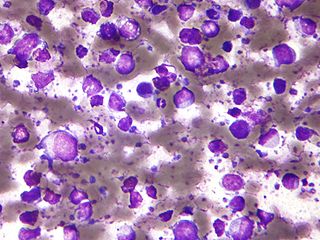
Clinical-stage vaccine development firm Immunovaccine has started dosing in a Phase II clinical trial with its lead cancer immunotherapy, DPX-Survivac, in patients with diffuse large B cell lymphoma (DLBCL).
The company-sponsored trial is designed to evaluate the efficacy of DPX-Survivac in combination with oral cyclophosphamide, an immune modulating agent, in these patients.

Discover B2B Marketing That Performs
Combine business intelligence and editorial excellence to reach engaged professionals across 36 leading media platforms.
DPX-Survivac is designed to activate killer T cells of the immune system against the survivin antigen found in a variety of solid tumours and blood cancers.
Around 24 patients with recurrent survivin-expressing DLBCL will be enrolled in this open label Phase II trial, which is being conducted at the Ottawa Hospital Research Institute and the Odette-Sunnybrook Cancer Centre, with additional sites planned as the trial progresses.
Immunovaccine chief executive officer Dr Marc Mansour said: "We believe that combining our T cell activating therapy with immune modulating agents is important to achieve a robust clinical response.
"Our data to date suggest that combining DPX-Survivac with low dose cyclophosphamide has the potential to provide a clinical benefit in some cancer patients.

US Tariffs are shifting - will you react or anticipate?
Don’t let policy changes catch you off guard. Stay proactive with real-time data and expert analysis.
By GlobalData"With cyclophosphamide often used as a low toxicity therapy in recurrent/refractory lymphoma, recurrent DLBCL represents an excellent indication to demonstrate the efficacy of the DPX-Survivac/cyclophosphamide combination in this patient population with a high unmet medical need."
The company said that investigators for the multi-site trial will determine the percentage of patients with measurable disease who respond clinically to the DPX-Survivac therapy.
In the trial, immune responses and changes in tumour biopsies from these patients will also be monitored.
The DPX-Survivac vaccine includes survivin-based peptide antigens formulated in the DepoVax adjuvanting platform.
This vaccine is thought to work by eliciting a cytotoxic T cell immune response against cells presenting survivin peptides on HLA class I molecules.
Image: Micrograph of a large B cell lymphoma. Photo: Nephron.





